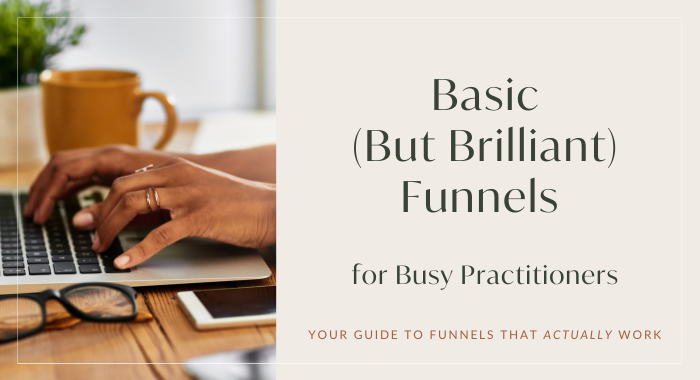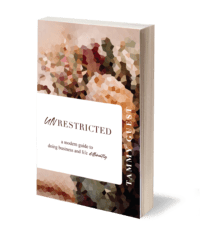I fully understand what it means to be responsible in a conversation. I learnt the difference between reaction and responsibility in relation to client management when a complaint was filed with the ACCC against me.
Here’s how it all started and the lesson I can pass on to you…
What was a simple skin issue turned into this complaint 3 weeks later. When the client I had treated filed a complaint, it triggered an emotional reaction in me that was as heart opening as it was instantaneous. Looking back, I went through a huge amount of stress trying to find where I could have done better to avoid it.
As it turned out, she was taking some medication for a mental illness that she omitted from her intake form. A supplement I had given her had adversely reacted with the medication she was taking. The ACCC investigated the issue, as it’s their job to ensure that the gaps are found and plugged. We then came to an agreement that neither of us was at fault.
During this time, the conversations was very much from a reacting mode and I remember feeling like a fraud and coming from a place of lack. This is when I really understood what it was like to react in a conversation.
I was a mess for two weeks and had thoughts of never practising again and going back to pathology work.
If we both had come from a place of communicating instead of acting and reacting, this whole situation would have been entirely different and an easier conversation. Definitely emotionally easier for both parties as well.
Reacting, responding, and taking responsibility are not all the same thing.
The clarity around that grew as I was going through the complaint process.
What also came out of this is a process we now use where we specifically discuss every supplement we give clients and how they might interact with medications the might be taking. It has become a part of the practice by taking responsibility for that part of the conversation I have with patients.
The second opportunity to understand this more came when someone became a nuisance on my Facebook page and was acting out. My first reaction was the same as it was with the ACCC complaint.
My mindset started to get the better of me with thoughts like “I’m not good enough, I’m a fraud”. You know the deal.
I realised then that I was reacting.
Coming from a place and desire to have clear communication requires you to join on a soul and heart level.
So that is what I ended up doing. Instead of reacting, I wanted to respond.
I looked at where in my life this is reflecting off. I realised that the last few posts on my Facebook page haven’t been 100% me.
Stepping back is a good idea in cases like this. It gives you the space to recognise what part of the conversation you own.
I wanted to own my 50% in that conversation, so decided to show people a photo of my kids’ packed lunchboxes that had pre-packaged food in them. I wanted to show, in a genuine way, that I wasn’t perfect either. I’m like other mums. Sometimes too tired or too busy and that’s reality.
There are always going to be people out there who will disagree with you. There will always be people out there who are not your cup of tea. And that’s OK.
You will have clients that will see you once and will never come back to you. And that’s OK too. You are not their person or they are not your person.
When you show up and communicate effectively instead of reacting to a situation, you are contributing to the solution, instead of compounding the reactions.
You are only responsible for your part of the conversation. That is another important lesson to learn.
We have conversations with patients all the time and sometimes they come to the party, sometimes they don’t. Share all your amazing, accumulated knowledge with a client about a health issue they have. You want to help them and you know how to help them. You give them tools, you give them information. They might come back to you a month later not having done anything about their issue or the information and tools you have equipped them with.
This is where you have to recognise what part of the conversation is up to you, and which part is not.
You don’t have control over how people will apply the advice you give them. You can only plant the seed but they need to water the garden to grow that seed.
Learn to recognise the difference between your zone of influence and your zone of control as they are not one and the same.
You can be as invested in an outcome as you want with a patient but you may never see that seed sprout. Sometimes it takes a long time. You need to own your part of it and your clients need to own theirs. That’s their 50%.
So think about the last disagreement you had with someone, what was your 50% in that? How could you have improved your reaction?
It’s something to consider, and I’d love to hear your thoughts in the comments below.
Hugs,
Tammy.









Leave A Comment